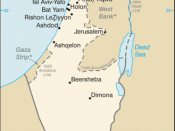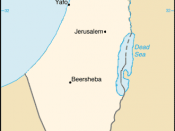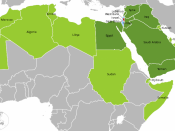Matriculation No: 120004127
Module: IR2006
Tutor: Simon Taylor
Date: February 17th, 2014
Word Count: 2,061
Question: Why are there such divergent views of the history of the Middle East and why has the acceptance of such views been so instrumental in helping perpetuate the conflict, especially that between Israel and Palestine?
IR2006
Why are there such divergent views of the history of the Middle East and why has the acceptance of such views been so instrumental in helping perpetuate the conflict, especially that between Israel and Palestine?
The Middle East is perhaps one of the most history rich and politically complex regions of the World. With both domestic and international issues prevalent, it is crucial to fully understand the historical context of the conflicts that lie within it. However, considering the convolution of the region, one must pay close attention to the variation of historical narratives present, especially in regards to the Israeli/Palestinian conflict.
The divergent views of this specific conflict can be further explained and understood by utilizing constructivism as a method of analysis, specifically Alexander Wendt's theory of collective identity formation and a Hobbesian culture of identity.
Approaches to History: Historical Narratives
In 1961, E.H Carr in his work, What is History, describes history as having "no factâ¦[that is] entirely value-free; it is always filtered through the interpretive forces of the original epoch, and again by the biases of the contemporary historian" (Williams 9). This can be further reinforced by the historical narrative method that by definition can have "many different kinds of central subject", this is all dependent on the interest and focus of the historian and can be "confined to one or more aspects of national life: the nation's policies, society, economy, religion, art, and so on" (McCullagh 32). The central focus which the historian...


